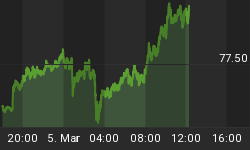Lately we've been writing about the importance of the bond market. Want a hint if we will have hyperinflation? Follow the bond market. Japan and the US in the 1930s didn't have hyperinflation because there were enough domestic savings to finance the expansion of the government. Rather than argue about inflation/deflation, people should be talking about the bond market.
Sovereign governments through their bailouts, stimulus packages and support, have basically become the credit markets. Hence, the one market to watch is the Treasury market. Globally, one should watch various sovereign bond markets. As a result of governments absorbing private debts (and soon to be state and local debts), the global bond market (especially US, UK and Japan) will be the next victim of the credit crunch.
It doesn't take a genius to realize there is not enough capital to meet the growing needs of various governments. They are already running large deficits that will exacerbate as their economies struggle to recover but spending grows. Moreover, the domestic savings that existed in Japan and the US in the 1930s do not exist for any of the big three. As interest rates rise, governments will be forced to monetize debt. As we have explained in previous writings, this is the genesis of severe inflation.
If we are correct about this prognosis, then precious metals should begin to outperform the other asset classes, which have outperformed precious metals in the last twelve months.
Lets take a look at the technicals of various markets to see how this scenario could play out. Note the difference between Gold and the other markets.

Gold has very little overhead resistance while the majority of other markets are nearing strong and sizeable resistance. Gold has been consolidating and holding above support while these markets are in a tired and overbought state.
If sovereign bonds begin to break in the coming months, then Gold should benefit substantially. Obviously there are trillions sitting in bond markets and Gold is hardly a crowded market. Fundamentally, sovereign debt and currency problems are most bullish for Gold. Meanwhile, the technical situation favors Gold. As stocks and commodities struggle at long-term resistance, Gold, once it completes its consolidation, will have virtually no resistance in front of it. It is a potentially explosive situation.
In our Gold & Silver Premium service we are monitoring the day-to-day developments in the precious metals markets to keep our subscribers ahead of what is coming. Consider taking a free 14-day trial to our service.
















